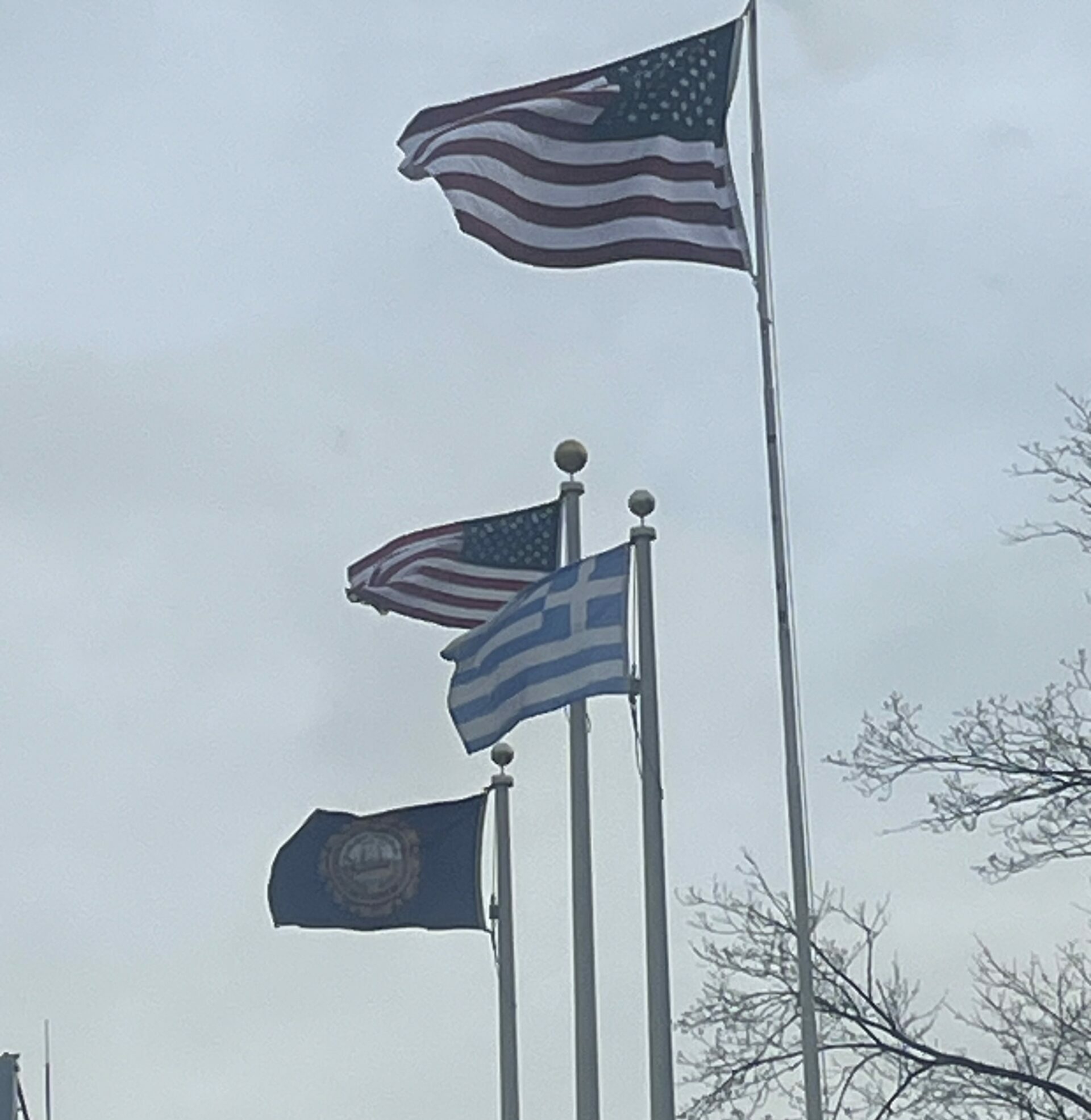A federal judge ruled Friday the City of Nashua did not violate resident Beth Scaer’s First Amendment rights when it denied her permission to fly the “Appeal to Heaven” Pine Tree flag on the citizen’s flag pole.
“The Magistrate Judge correctly found that the undisputed facts indicate that the flags displayed on the Citizen Flag Pole pursuant to Nashua’s 2022 Flagpole Policy constituted government speech not regulated by the First Amendment,” ruled United States District Court Judge Landya McCafferty.
For years, the City of Nashua had a policy of making a flagpole at City Hall available, upon request, to citizens who wanted to celebrate or demonstrate on behalf of an idea or group. In the past, that included the flags of Ireland, India, and Ukraine, along with the “Suffrage” flag, the “Children of the American Revolution” flag, and the Lion’s Club flag. Recently, city officials took down the New Hampshire state flag to make room for a “Progress Pride” banner.
What the city would not allow was the flying of a flag promoting women’s rights/girls-only sports or the historic “Appeal to Heaven” Pine Tree Flag. Nashua resident Beth Scaer told the city she wanted to fly the flag to commemorate the anniversary of the Bunker Hill battle, in which several New Hampshire residents took part.
The city refused.
“The flag is not in harmony with the message that the city wishes to express and endorse. Therefore, we must deny your request,” wrote Jennifer L. Deshaies, whose job title in city government is “risk manager.”
Scaer sued, and her cause was taken up by the Institute for Free Speech (IFS). The case went before Magistrate Judge Talesha Saint-Marc last year.
During testimony before Saint-Marc, City Attorney Jonathan Barnes compared flying the Pine Tree flag at City Hall to flying a Nazi flag.
“(The plaintiffs) would have you believe that we can raise the Nazi flag to commemorate Hitler’s birthday. I think that’s totally unreasonable, and it certainly wouldn’t be in the city’s best interests to do that,” Barnes said.
In her report rejecting Scaer’s complaints, Saint-Marc called the flag a “far-right” symbol and noted it was flown by some participants in the Jan. 6, 2021 U.S. Capitol riot.
In fact, the pine tree was a common symbol of New England during the Revolutionary War era. The Pine Tree Flag was adopted as Massachusetts’ state flag for a brief period.
The symbol is also tied to the historic Pine Tree Riot in Weare, N.H., one of the first acts of rebellion leading up to the American Revolution.
As for Jan. 6, free speech advocates note the most commonly flown flag by the rioters was the U.S. flag, which currently flies in front of Nashua City Hall.
McCafferty was unmoved.
The legal issue in dispute is the city’s claim that the so-called Citizen’s Flagpole was never, in fact, a free speech forum, despite the many flags flown by many residents to promote various causes. The city insists every flag was a form of “government speech not regulated by the First Amendment,” as McCafferty ruled.

(CREDIT: Beth Scaer)
The IFS points out that Nashua Mayor Jim Donchess suddenly (and quietly) ended the city’s flagpole policy soon after the lawsuit was filed. ‘The flagpoles on city hall grounds shall henceforth be exclusively controlled by city government,” Donchess declared.
“The abrupt repeal of Nashua’s flag policy is a tacit admission that the old policy was unconstitutional,” IFS attorney Nathan Ristuccia told NHJournal at the time.
On Monday, Ristuccia told NHJournal there will be an appeal.
“We fully intend to appeal this decision to the First Circuit, where we’ll continue arguing that Nashua’s vague and subjective flag policy created exactly the kind of viewpoint discrimination the Supreme Court has repeatedly found unconstitutional.”
Meanwhile, the city’s flag policy continues to raise questions. Just days before McCafferty’s ruling, the city pulled down the POW-MIA flag that traditionally flies outside City Hall and replaced it with the national flag of Greece. It was, according to a statement from the city, to commemorate Greek Independence Day on March 25.
“I don’t know why they ditched the POW-MIA flag, but I think it is disrespectful,” Scaer told NHJournal.

